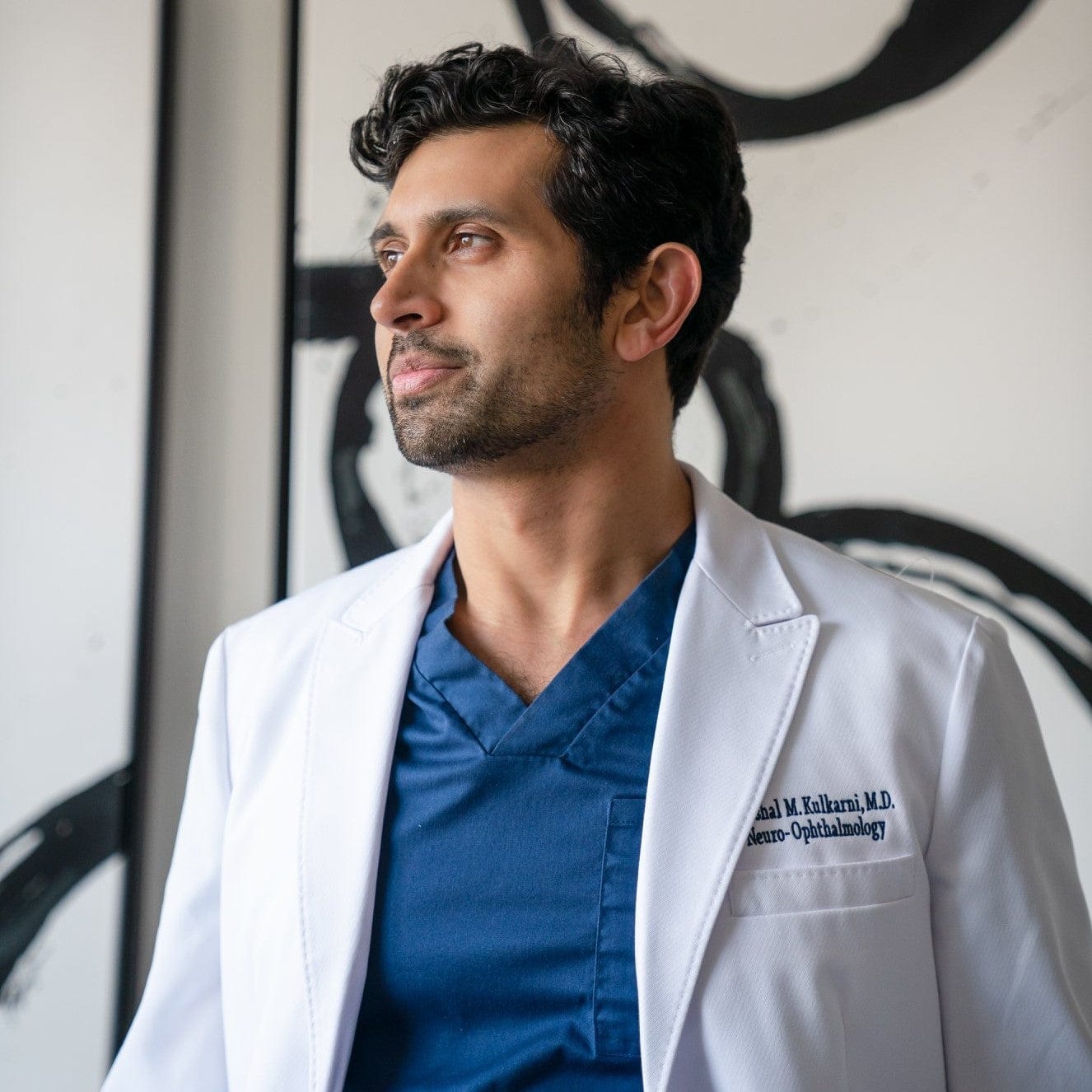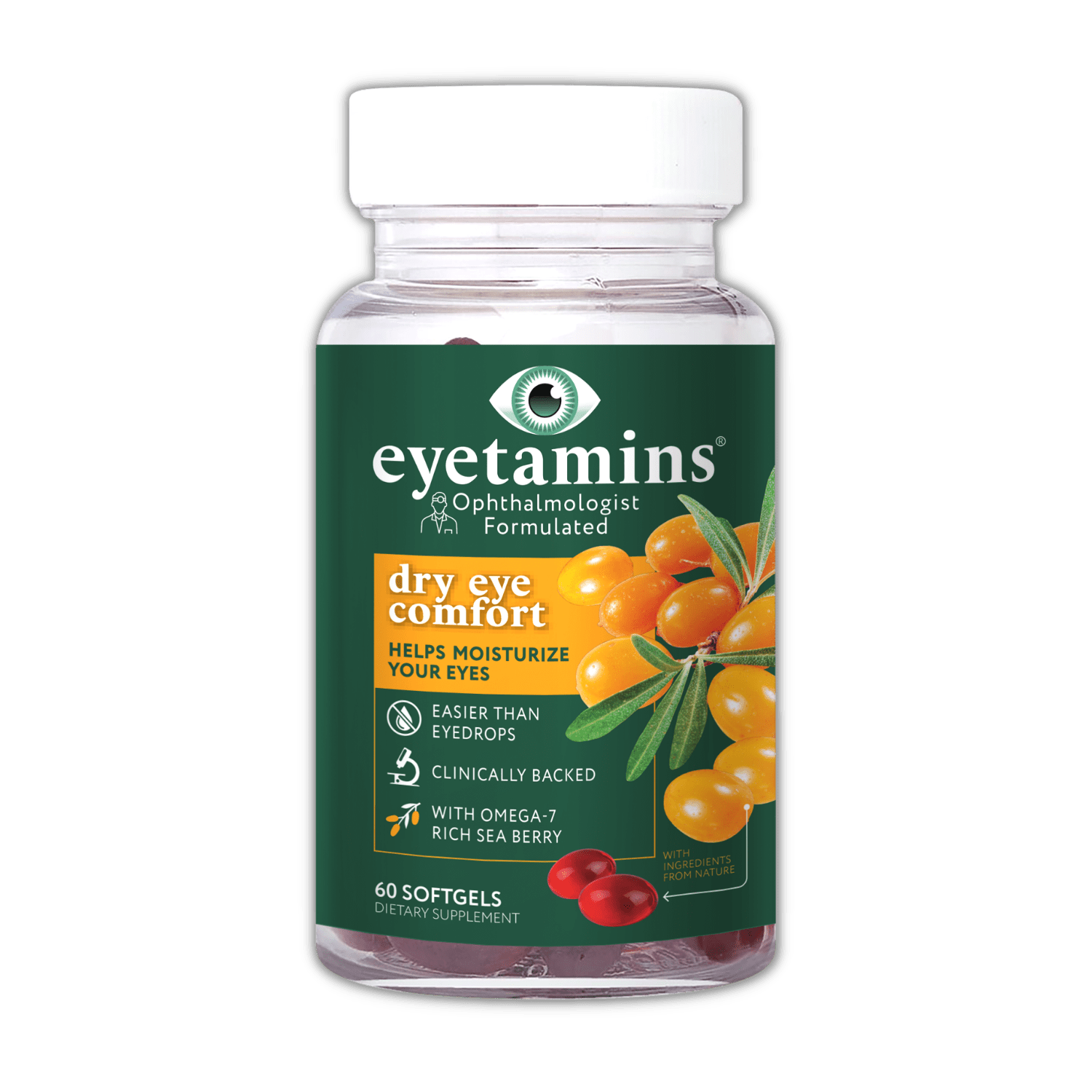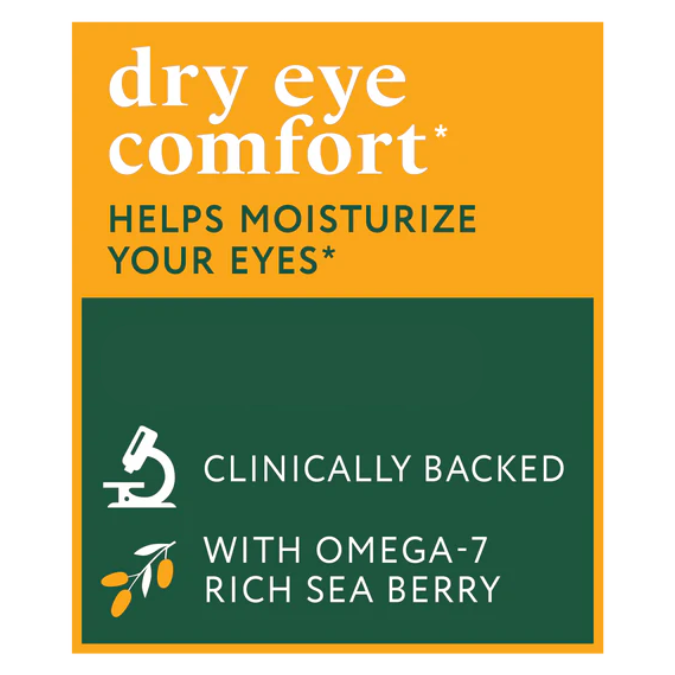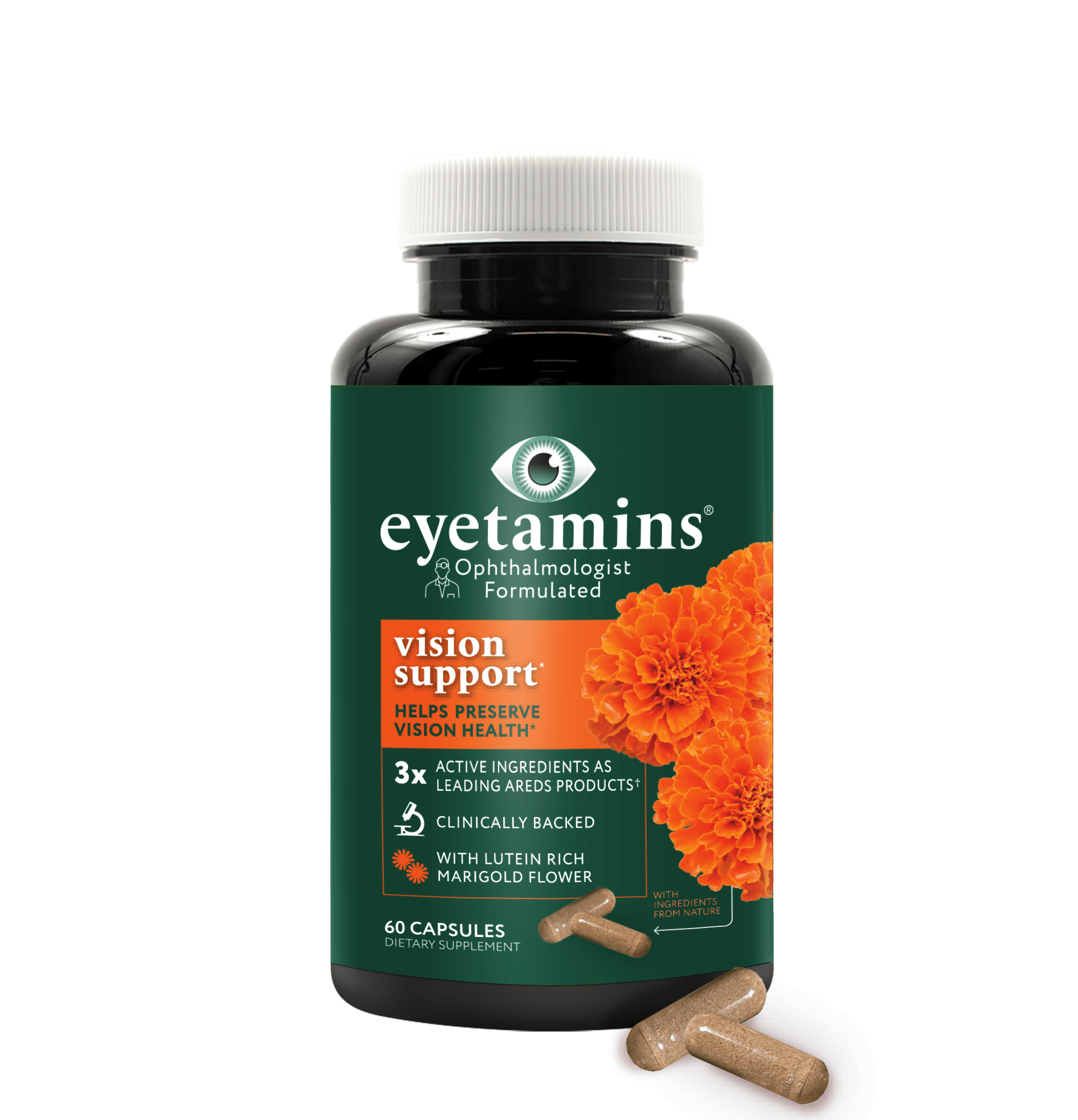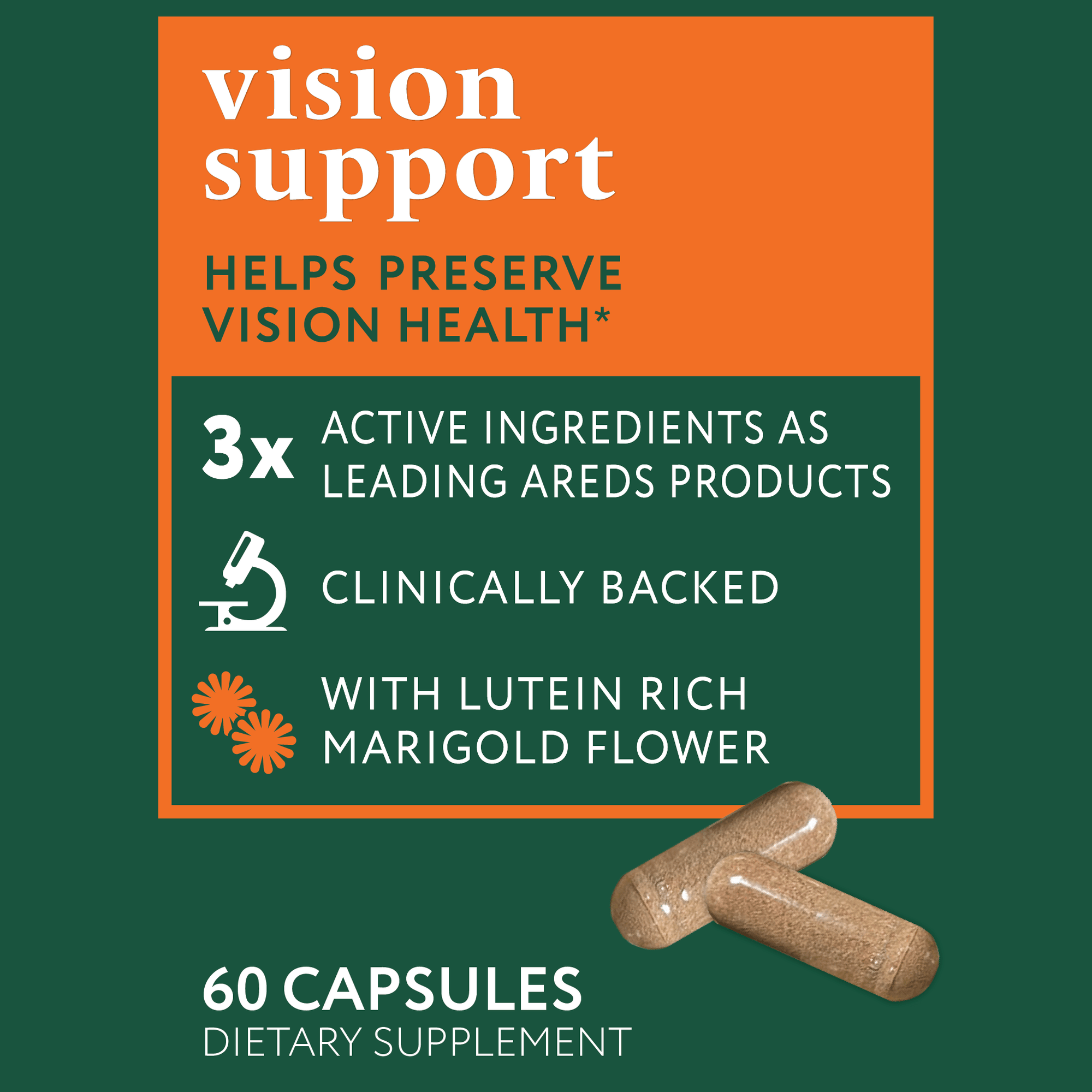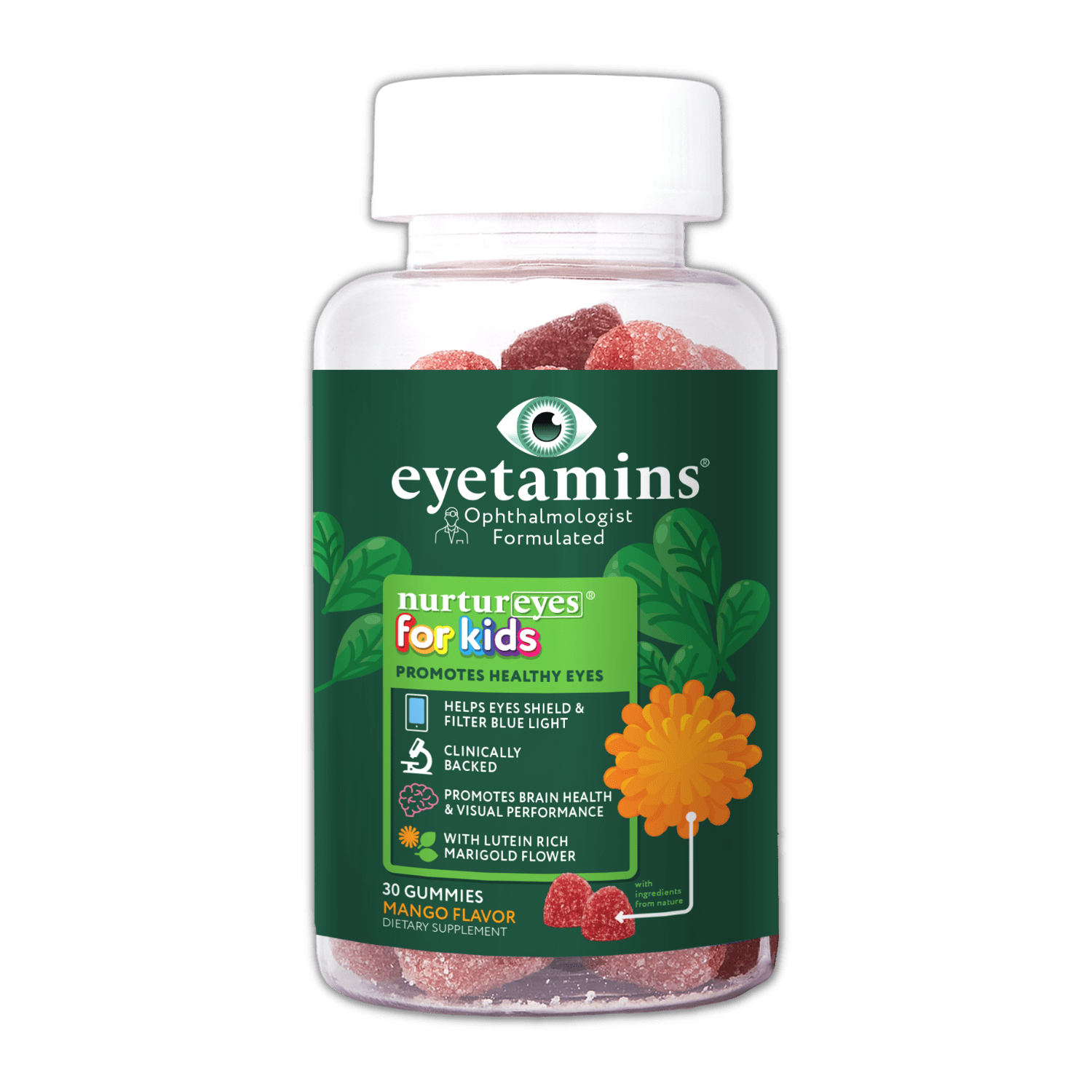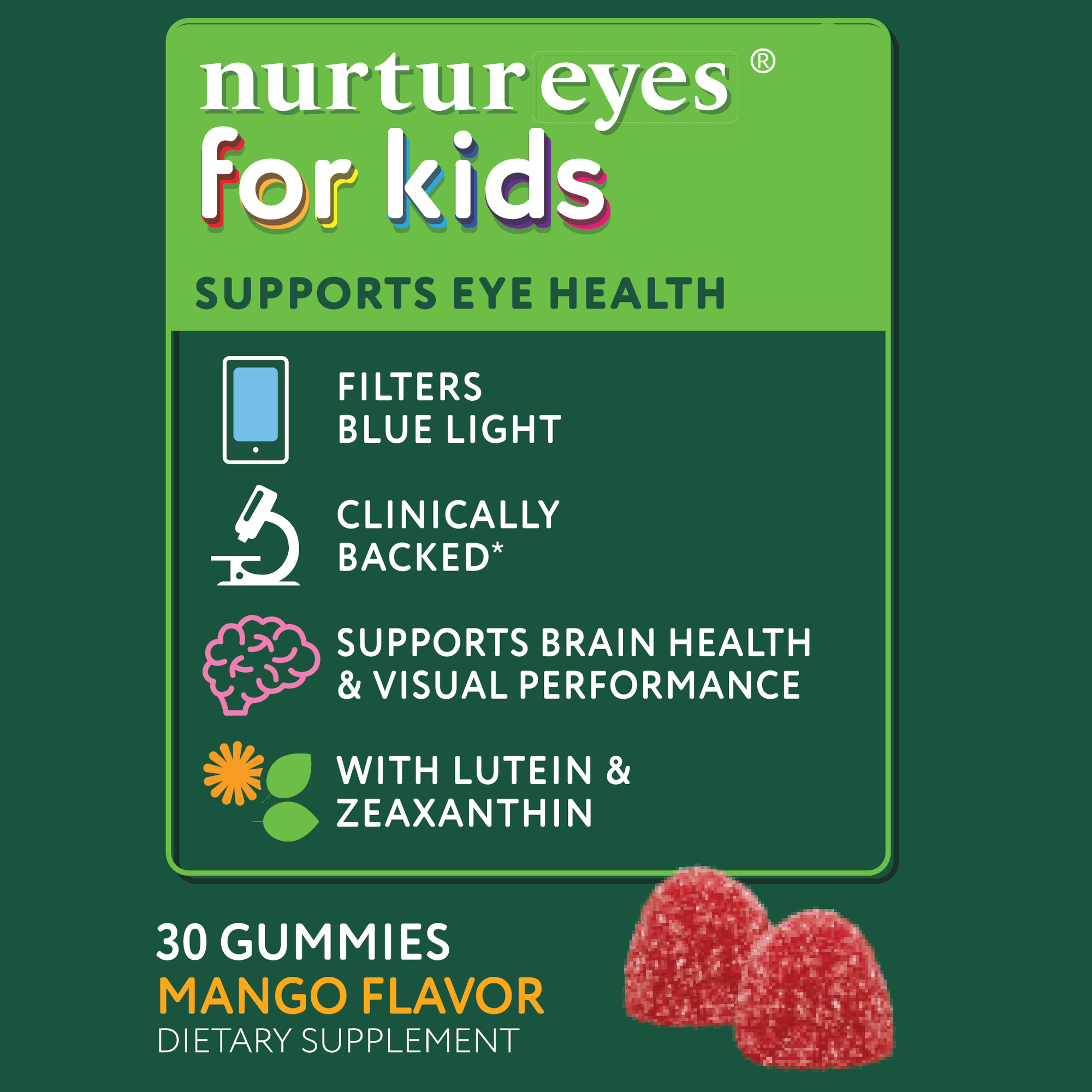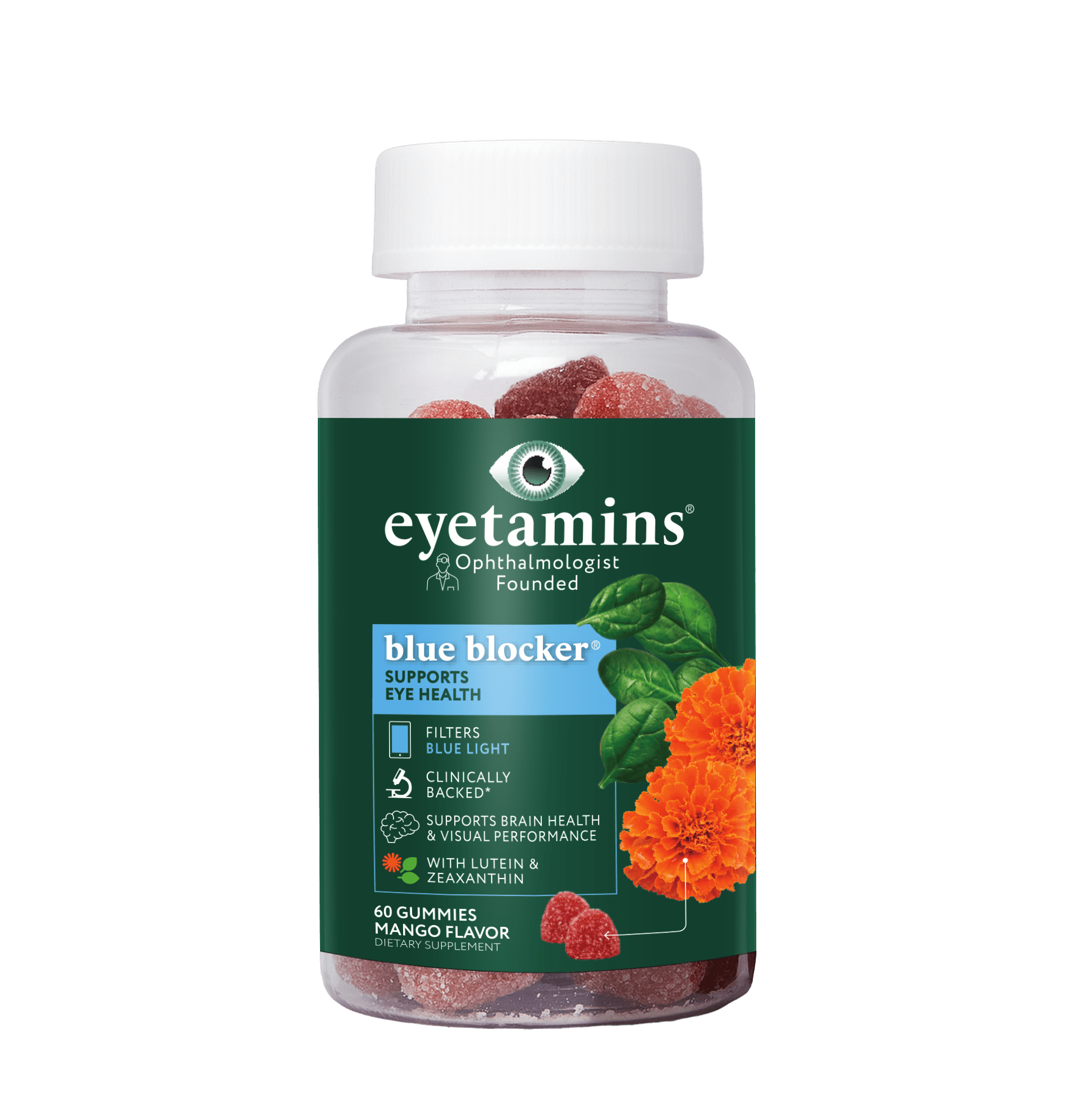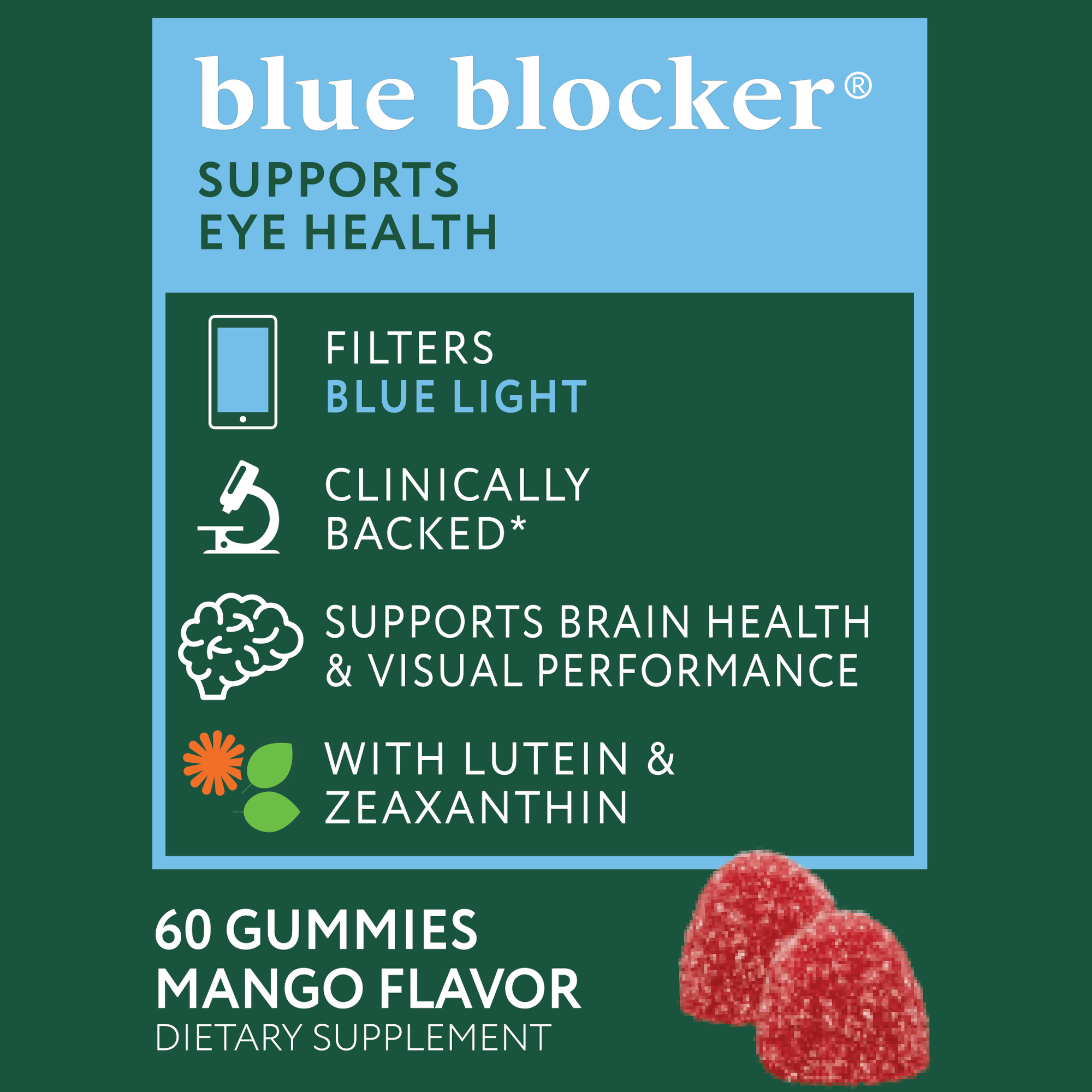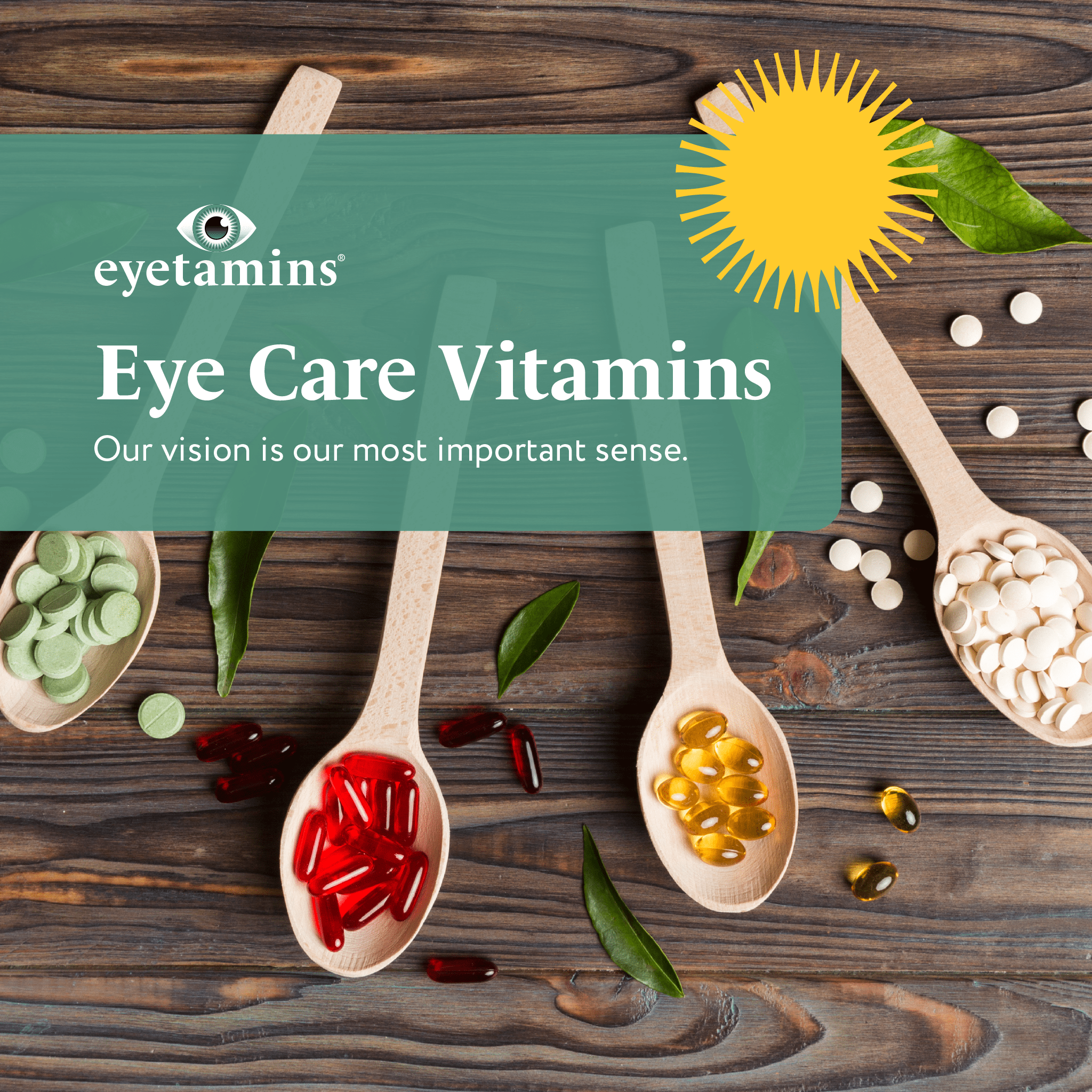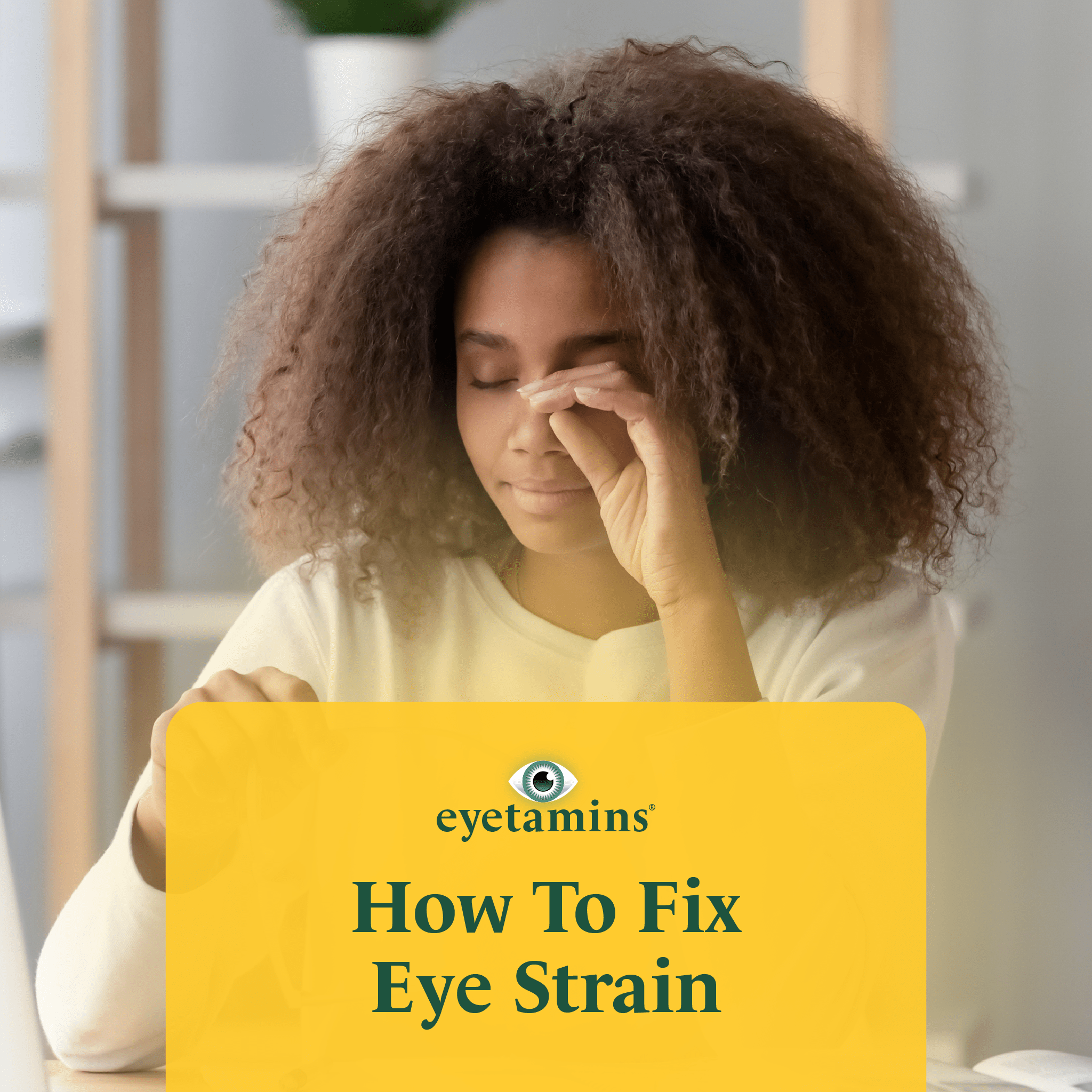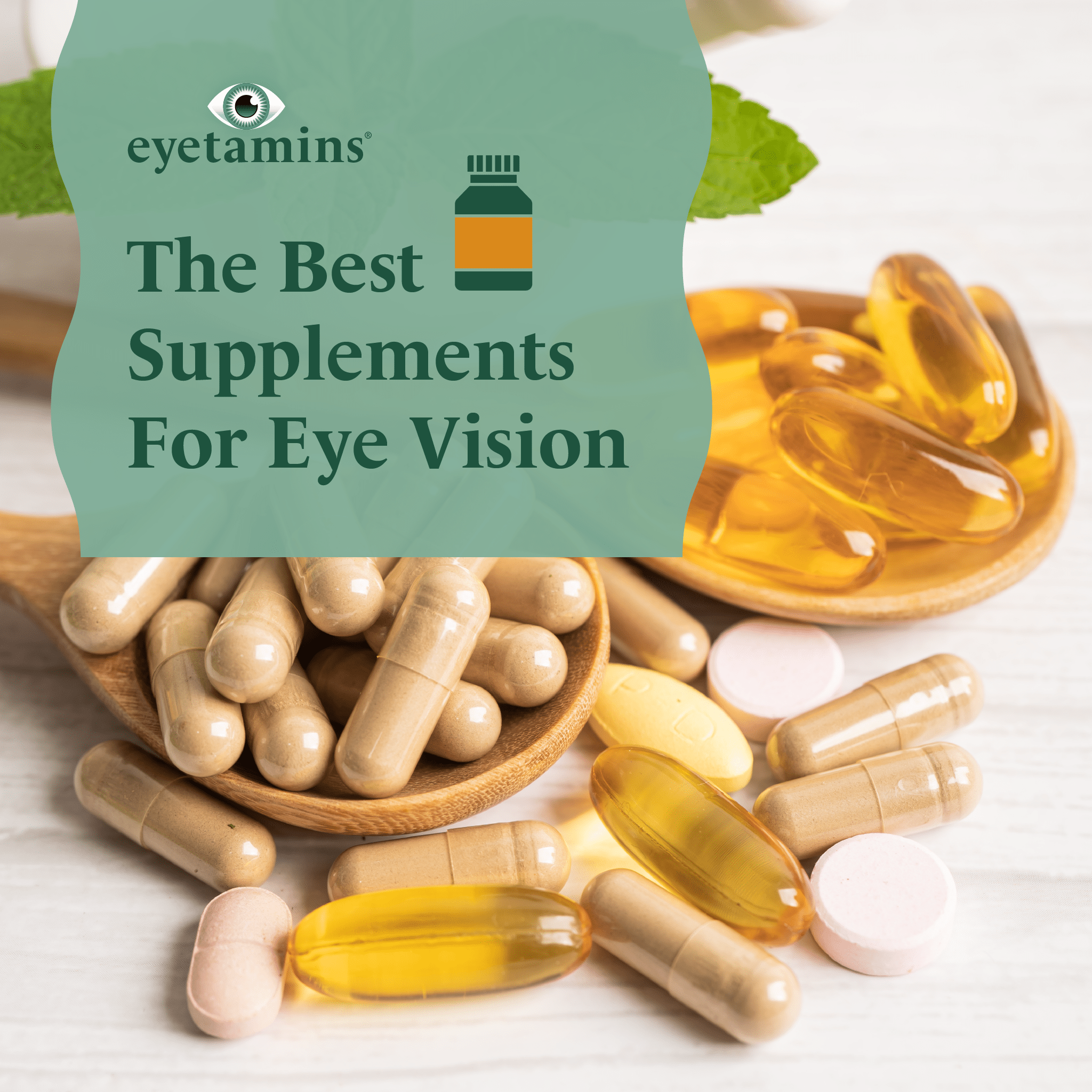· By Kaushal M. Kulkarni, M.D.
Boost Your Diet to Protect Aging Eyes
As you age, you may notice that your vision is not as sharp as it once was. You may also be increasingly concerned about eye problems like vision loss, cataracts, glaucoma, and floaters.
Though aging eyes are as natural as any other part of getting older, some eye conditions common in older adults are avoidable with the help of proper diet and nutrition.
In this article, we take a closer look at which foods are good for your eyes (and which are not), and how supplements can help ensure you are getting the right nutrients. Let’s get to it!

How Your Diet Affects Your Eyes
That old adage “You are what you eat” is especially true when it comes to eye health. The eyes are full of very small capillaries that carry nutrients and oxygen to the retina, the part of your eye that receives and organizes visual information. Fatty deposits from some of the unhealthiest foods can easily block these tiny blood vessels, leading to serious eye and vision issues such as Retinal Vein Occlusion (RVO), Age-related Macular Degeneration (AMD), blurred vision, and blindness.
Because optimal eye health is dependent upon veins transporting nutrients, vitamins, and oxygen, a heart-healthy, vascular-centric diet is best for your eyes, too. The best foods for your eyes all contain:
- Vitamin A : Vitamin A has antioxidant properties and is good for your immunity, cell division, and growth. Vitamin A is also vital to good eye health and reduces the risk of macular degeneration and cataracts. Liver, fish, carrots, and broccoli are just a few of the many foods rich in Vitamin A.
- Lutein and Zeaxanthin: Lutein and Zeaxanthin are carotenoid antioxidants. They are mainly found on the central part of the retina, where they act as a natural sunblock for your eyes. Studies have linked proper amounts of Lutein and Zeaxanthin to both healthy eyes and decreased risk of issues like macular degeneration. Spinach, pistachios, egg yolks, and red grapes are all excellent sources of Lutein and Zeaxanthin.
- Omega-3 Fatty Acids: Omega-3 fatty acids are nutrients the body absorbs from foods like fish, nuts and seeds, plant oils, and certain fortified foods. Omega-3s are vital to the structure of the cells that make up your body, and are a source of energy for your heart and lungs. In healthy eyes, Omega-3s keep eyeballs moist and help to prevent chronic dry eye.
- Zinc: Zinc is a nutrient found in foods such as chicken, red meats, lentils, and crab meat. Once absorbed by your body, Zinc plays a role in your metabolism, immune system, wound healing, and even your senses of taste and smell. Zinc also helps form the pigment of your retina, and a lack of zinc could lead to issues like blurred vision and night blindness.
Best Foods for Eye Health
Getting enough eye-healthy nutrients should be a dietary priority. Some of the best foods for your eyes include:
- Oranges and other citrus fruits
- Uncooked Bell peppers (especially red and orange)
- Carrots
- Sweet potatoes
- Summer squash and winter squash
- Dark green leafy vegetables (especially kale, spinach, broccoli, Brussels sprouts)
- Legumes (especially beans, chickpeas, kidney beans, lentils, black-eyed peas)
- Nuts and seeds (especially peanuts, wheat germ, sunflower seeds, chia seeds, fortified cereals)
- Fish (especially salmon, tuna, mackerel, sardines, and trout)
- Lean meats (lean beef, pork, poultry)
- Oysters
- Eggs
Water
Not only is water vital to overall good health, but it also keeps your eyes lubricated in the form of tears. Tears keep your eyes comfortable, remove bacteria, and get rid of harmful dust and debris.
Worst Foods for Eye Health
There are also a number of foods that speed up the aging eye process, and contribute to a number of vision problems. Some of the worst foods for eye health include:
- Condiments that are high in fats (mayonnaise, salad dressings, jelly)
- White, carb-heavy foods (pasta, rice, flour tortillas, white bread)
- Fatty meats (sausages, deli meat)
- Margarine
- Saturated fats (French fries, cookies, potato chips, etc.)
Processed foods are also terrible for your eyes. A study conducted by the Massachusetts Eye and Ear Infirmary found a link between the fats in processed junk food and eye-health issues such as age-related macular degeneration.
Eye Supplements
If you are a picky eater, or are otherwise concerned about getting the proper foods for eye health into your diet, then your ophthalmologist will likely suggest eye supplements. Eye supplements like this one are carefully formulated to include Zinc, Vitamin A, Lutein, Zeaxanthin, and other nutrients beneficial to the health of your eyes. Not only will supplements ensure your eyes are healthy and working properly, but they typically benefit your brain and help with sleep, too.
Aging Eyes & Overall Health
Your eyes never stop being vital to your daily life, so it is important to take care of them as they age. According to the American Academy of Ophthalmology, older adults should make sure they are getting regular eye exams. Specifically, adults aged 40 and older should schedule a “baseline” eye exam, even if they aren’t experiencing changes in their vision or have a family history of eye problems. Adults aged 65 and older should make sure they are seen by their eye doctor at least once every year.
Some common signs related to aging eyes include:
- difficulty seeing and driving, especially at night
- trouble reading small print, or print up close
- red, watery eyes
- random flashes of light
- blurry vision
- double vision
If you notice any of these signs or are experiencing general eye discomfort, then it is important to get in for an eye exam as soon as possible. Early detection of a vision issue or eye disease often means saving your eyesight. But when it comes to eye health, you should also be thinking beyond your eyes. As discussed above, your eyes are dependent upon the capillaries that transport oxygen and nutrients. Because capillaries are part of the body’s vascular system, your heart health is directly related to your eye health (yet another reason to follow a healthy diet!).
Besides eating well, you can also take good care of your eyes and heart by:
- staying active through regular exercise, yoga, and/or walking
- maintain a healthy weight
- avoid smoking and excessive drinking
- control your cholesterol and blood pressure
- relax and try to keep a low-stress level
People Also Ask
1. How can I stop my eyes from aging?
Just as your body ages, so too do your eyes. While you can’t stop your eyes from getting older, you can prepare them for later years by following a nutrient-rich diet, visiting your eye doctor for regular eye exams, and wearing sunglasses to protect from harmful ultraviolet rays.
2. What are some things to do to protect aging eyes?
If you’re getting older, you’re noticing vision changes, or you’re in the early stages of one of the many age-related eye diseases, then it’s time to start protecting your aging eyes. Boost your diet to include as many beneficial nutrients as possible, pick up an eye-health supplement, and get to an optometrist for an eye exam. If you need to, start wearing contact lenses or reading glasses.
3. What are the normal signs of aging eyes?
Specks or floaters, difficulty reading small print, and glare sensitivity are all common signs that your eyes are aging. Though these signs are completely normal, it is important to get in for an eye exam when you first begin to notice them. According to the National Institute of Health (NIH), proper eye care as you age can help prevent serious problems, including loss of vision, cataract surgery, presbyopia, and more.
4. At what age do vision changes occur?
You may notice vision changes in your 20s and 30s, though these changes are almost always corrected by either glasses or contact lenses. More serious changes occur in middle age, between the ages of 41 and 60 years old. This is when many adults begin reporting common vision issues, such as blurred vision when reading up close, dry eyes, trouble seeing at night.
Conclusion
It is true that “you are what you eat.” When it comes to your ocular health, your eyes are completely dependent upon the oxygen and nutrients that are transported through thousands of tiny capillaries.
If these tiny veins become blocked by fatty deposits, then it could lead to vision loss, age-related macular degeneration, and other serious issues. For this reason, it is important to stick to eye-healthy foods such as citrus, legumes, leafy vegetables, and lean meats, and fish that are full of Vitamin A, Zinc, and Omega-3.

